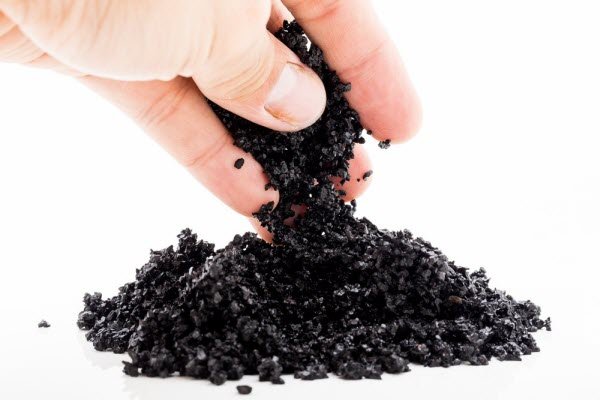Activated charcoal filters are an excellent choice for negative-pressure workspaces, as they absorb fumes effectively. Traditional HEPA and ULPA filters capture most particulates in the air but cannot remove the odours associated with chemical fumes. Even non-hazardous chemicals can create an unpleasant odour that can negatively impact workers’ health and reduce productivity. Terra-activated charcoal filters approach 100% capture efficiency when dealing with common organic fumes.
The Power of Adsorption
Charcoal filters are highly effective in removing contaminants from the air. They work by trapping the substances that pass next to them. This is possible because charcoal’s huge surface area has countless bonding sites, and this attraction causes the substances to become trapped on its surface. Charcoal filters are ideal for treating exhaust gas streams.
Charcoal is an ancient material that has been used for a variety of applications. It is mentioned in Hindu documents dating back to 450 BC. In the 18th and 19th centuries, it was used in the sugar industry to decolourize water. In modern times, it is made into charcoal filters by processing it. The activation process increases the surface area available for adsorption and chemical reactions.
Lots of Heat. Lots.
Activated charcoal filters can create soot and dust when a solution passes through the filter. If the solution is fairly colourless, it may not require charcoal. If it is, you can add more charcoal. However, this method can produce a lot of heat from charcoal particles. To avoid generating soot, ensure the charcoal is anchored to the filter media.
Activated charcoal filters are often used in the home to filter water and eliminate odours, and they can also remove bad taste and impurities. Filtered water tastes fresher and is better for you and your family.
Replacing Activated Carbon Filters
Replacing activated carbon filters is an important aspect of water filtration since carbon filters help remove dirt and contaminants from water. They do so by adsorption, and as a result, they need to be replaced promptly. Replacing your carbon filter will extend the life of your water filter and help keep your drinking water pure.
There are several signs that it is time to replace your carbon filter. It can be determined by the date of your last change, whether you notice a difference in taste or colour or whether your machine performs slowly.
Activated charcoal filters
Activated charcoal is a type of carbon treated with oxygen to create a highly porous surface. The highly porous surface allows liquids and gases to pass through, while the carbon can absorb many impurities. Some pollutants that can be absorbed by activated charcoal include chlorine, odours, pigments, and nitrates. The active surface area of activated charcoal is about 32,000 square feet, making it an effective filter for various applications. Activated charcoal filters are highly effective in reducing impurities in water and can also make it taste better.
Activated charcoal is the most common type of air filter. This filter can trap various impurities, including gases, dissolved solids, and bacteria. Activated charcoal filters remove these materials, which is great for homes and businesses with sensitive respiratory systems. In addition, many of these products also have a built-in carbon filter that can eliminate odours by trapping organic particles.
water filter
If you’re concerned about contaminants in your water, a water filter with a charcoal filter may be an excellent option. Charcoal is a natural substance that binds to toxic organic matter and allows minerals and other healthy substances to pass through. It also works by killing harmful microbes that may cause health problems. While activated carbon filters are highly effective at removing some contaminants, they can’t remove all of them. That means that you may still get some contaminants in your water, but you will be able to drink it without the unpleasant taste or odour.
Charcoal filters are particularly effective at removing chlorine and other harmful impurities from water and can also remove unpleasant odours. These filters are ideal for use in communal water systems as they remove chemical contaminants from the water while preserving its natural minerals. Charcoal filters also remove odours and nasty tastes.

